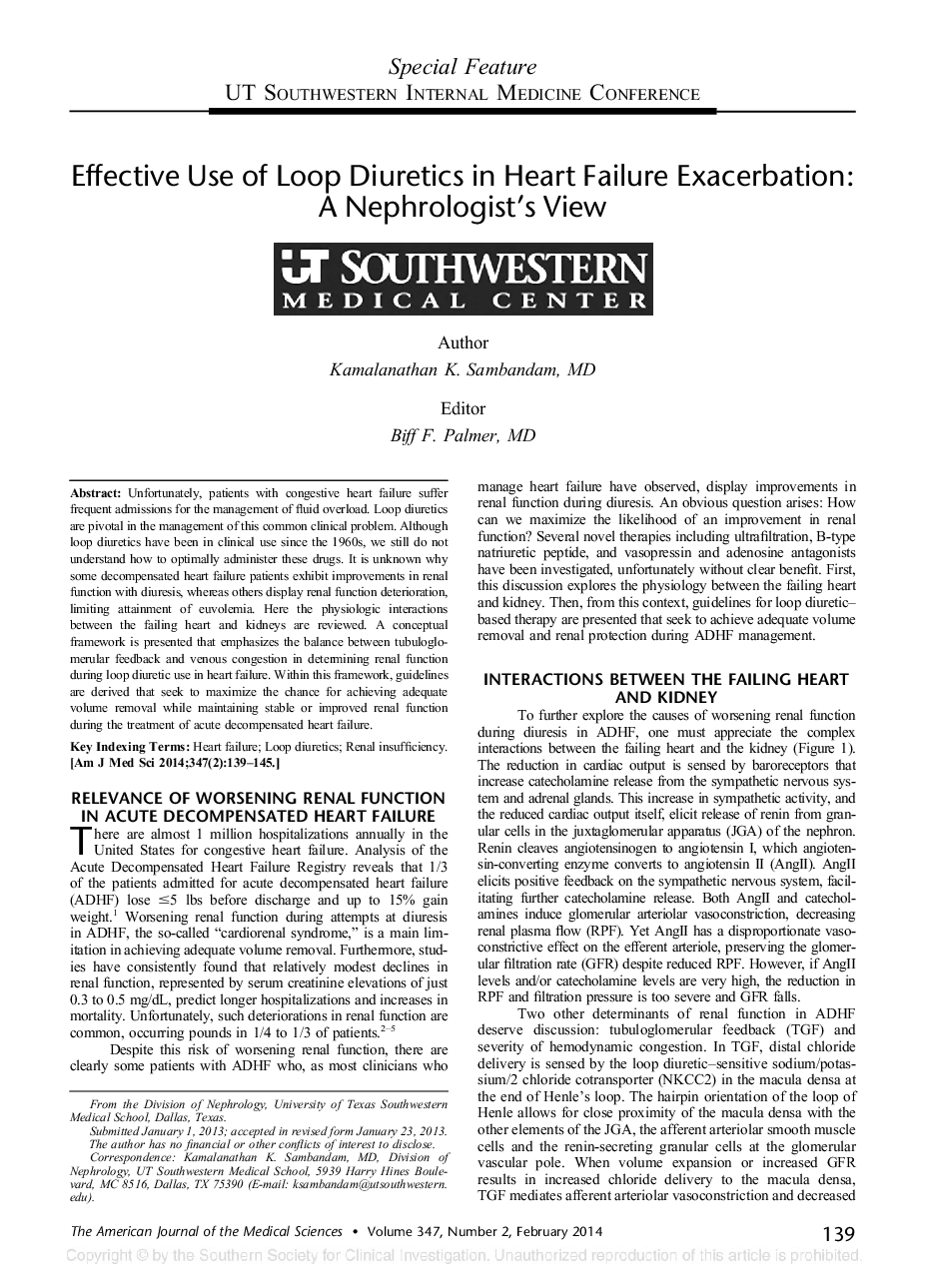| Article ID | Journal | Published Year | Pages | File Type |
|---|---|---|---|---|
| 2863431 | The American Journal of the Medical Sciences | 2014 | 7 Pages |
Unfortunately, patients with congestive heart failure suffer frequent admissions for the management of fluid overload. Loop diuretics are pivotal in the management of this common clinical problem. Although loop diuretics have been in clinical use since the 1960s, we still do not understand how to optimally administer these drugs. It is unknown why some decompensated heart failure patients exhibit improvements in renal function with diuresis, whereas others display renal function deterioration, limiting attainment of euvolemia. Here the physiologic interactions between the failing heart and kidneys are reviewed. A conceptual framework is presented that emphasizes the balance between tubuloglomerular feedback and venous congestion in determining renal function during loop diuretic use in heart failure. within this framework, guidelines are derived that seek to maximize the chance for achieving adequate volume removal while maintaining stable or improved renal function during the treatment of acute decompensated heart failure.
